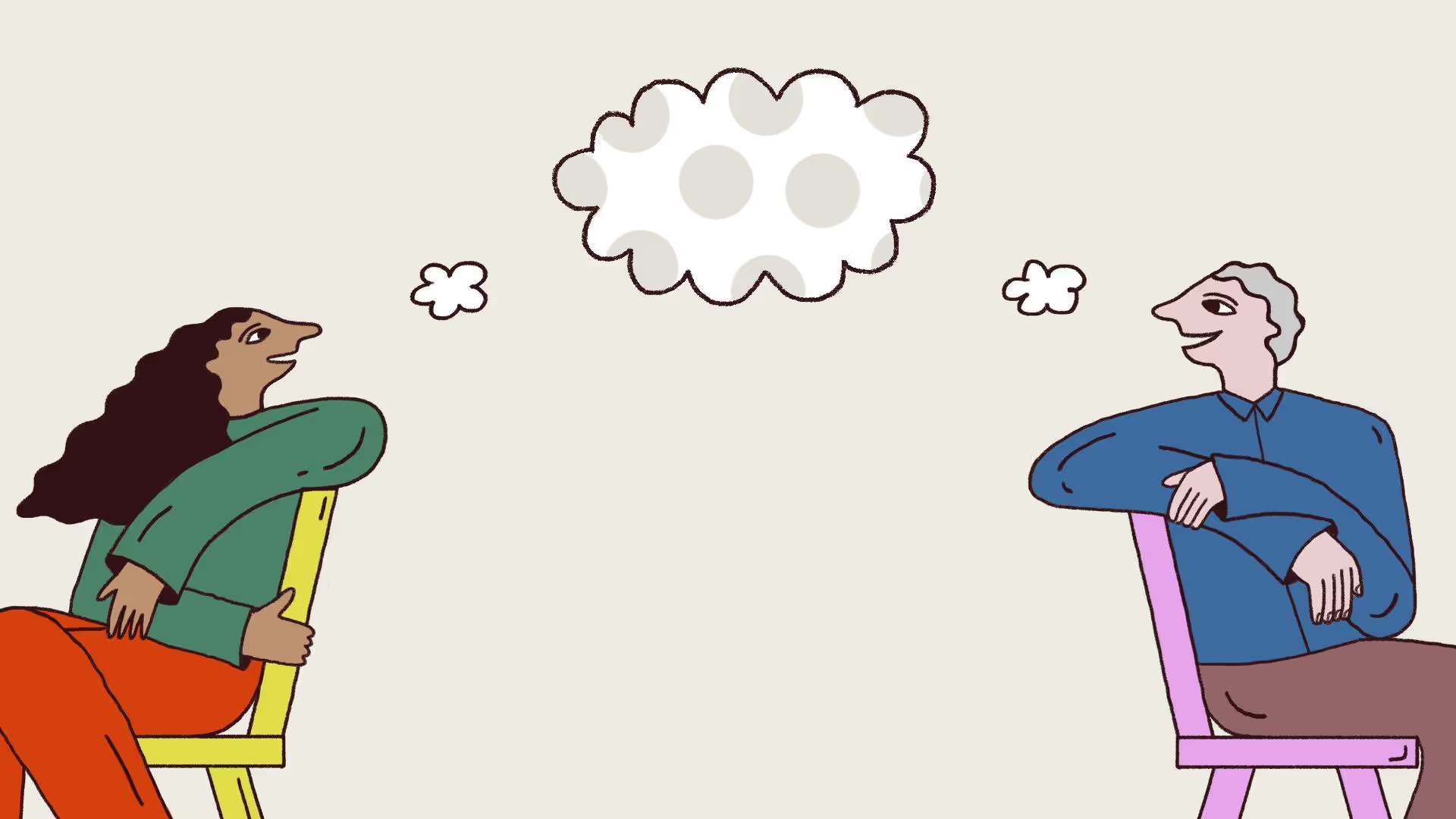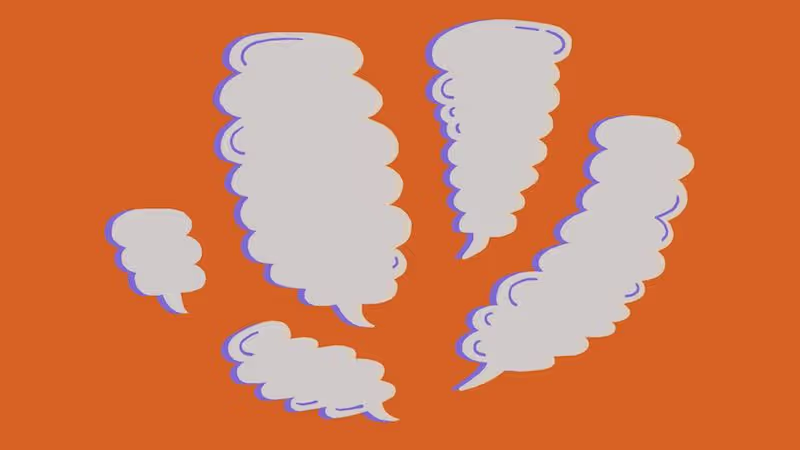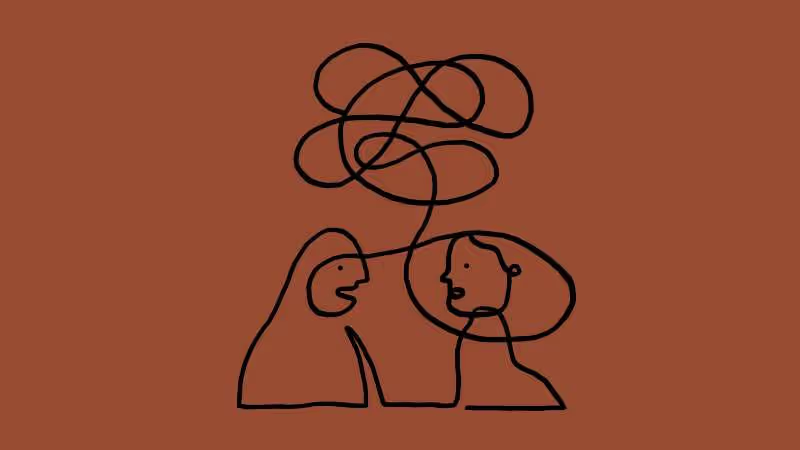Shall We Begin?
I am a person who likes big, deep conversations. I like when dinner parties move to the couch and floor after dessert, and when running into a friend turns into going out for a meal. I like small talk as well, but always saw it as superficial and sometimes tedious. But in the last month, little conversations with cab drivers, baristas, and fellow diners have shown me otherwise.
Recently, I was sitting at a cafe in Tribeca with my dear friend John who I hadn’t seen in fourteen months. We caught up over food and drinks, occasionally fumbling our words and noticing how our socializing muscles had atrophied over the last year. When I decided we needed a bit of mustard to go with our meal, I had to remind myself of how to ask the waiter. Do I gesture for him to come over with that expression that says “when you have a moment…”? Do I wait for him to stop by? Does John want mustard or is it only me? If I wait to eat until I get the mustard, will John feel that he needs to wait on my behalf?
I don’t think I’d ever been so aware of the tiny social calculations of interacting with people you don’t know (the waiter) or the people you know quite well but haven’t seen in awhile (John). I took the plunge and waved the waiter over. Soon, he returned with a basket of bread in one hand and our mustard in the other. But he put the bread on our table and the mustard on our neighbor’s table before disappearing to his next task. Perhaps he, too, had suffered his share of social atrophy—haven’t we all?
John and I looked down at the perfectly golden, crusty-edged, steaming hot bread and then at one another. Then we heard an unfamiliar voice say “I’m so sorry, but I think…” We looked up at our neighbors, and though we didn’t know them, I instantly recognized the familiar expression of someone trying to figure out how to navigate a social interaction with a stranger after more than a year without small talk.
“I think you have our bread and we have your mustard,” she said.
“But it looks so good!” I joked.
“Have some!” she said. “We’re vaccinated!”
“Us too!” we exclaimed.
She made a little gesture with her hand that said “go ahead, take a piece of bread,” and so we did. She passed us our mustard. We laughed together and chatted a little before returning to our respective meals and conversations. As they were leaving, she waved to us and gestured again to her bread basket. They had left us the last slice.
There was something about our interaction that reminded me of when my parents, at eighty years old, would visit me in New York. They’d go to Washington Square Park and sit on a bench until they heard someone speaking a language they understood, usually French. They could get lost for hours asking New Yorkers who had emigrated from Paris or Quebec or Haiti or Senegal about what they liked to do in the neighborhood. My parents would tell them about their daughter who immigrated to the states and ask why they had moved, and if they had kids. They’d come home ready to test out their new restaurant recommendations and I’d wonder how they had any energy left after that much small talk in one day.
Even when small talk is inconsequential, there’s something nice about two very different strangers passing time together, engaging in a dance of trying to find some small thing in common. And when done well, small talk is a kind of platonic flirting. It becomes a part of eroticism—that elixir of aliveness and spontaneity that makes life so rich. My parents were living proof that small talk is a bridge to others. But, until I had to live without it, I didn’t realize it’s the first step to breaking bread.
Let’s Turn the Lens on You
When it comes to small talk, start small. A few questions to get you started:
- Ask your server, “when you’re not working, what’s your favorite restaurant around here?”
- If you stop into a local shop, ask “how’s business been?”
- In a cab, ask your driver “where’s the most surprising place you’ve driven to?”
- Ask the people at the table next to you, “what did you order? It looks so good.”
- Ask someone on the street, “Where did you get your outfit? I love it!”
Let's continue the conversation.
Watch the replay of the Letters From Esther Workshop: How to Stretch Your Social Muscles.
More From Esther
Questions That Meet People Where They Are: / a newsletter
The questions we ask each other now must make room for peoples’ grief and for their growth.
Anti-Small Talk / a workshop
In this workshop, we talk about how to turn small talk into deep, meaningful conversation.
“He Gets the Respect. She Gets the Toilet Paper” / a “How’s Work?” podcast episode • Spotify
Married for ten years and co-owners of a gym for seven, this couple is struggling with how their team communicates. The staff talks to him about the big questions. They make small talk with her about domestic needs.
“How the Growing Identity Economy is Reshaping the Future of Work” / an Op-Ed
Leaders who treat employees as whole people—not just workers—can create workplaces that actually work (Fast Company).
Conversation Starters
A compendium of highly recommended sources of inspiration and information.
On My To Read List:
- A Radical Awakening: Turn Pain into Power, Embrace Your Truth, Live Free, a new book by Dr. Shefali Tsabary
- When They Came for Me: The Hidden Diary of an Apartheid Prisoner, a new book by John R. Schlapobersky
- The Committed by Viet Thanh Nguyen
I’m Watching:
- Hotel by the River by Sang-soo Hong
- Edge of Heaven by Fatih Akin
- The Witch by Robert Eggers
- Wings of Desire by Wim Wenders







.svg)





